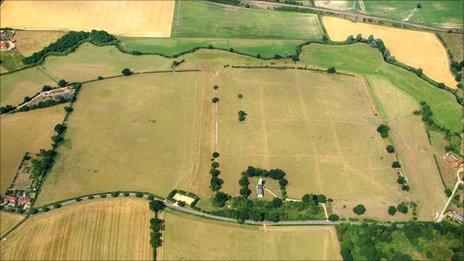Roman site in Norfolk has 'clear' signs of more buildings
- Published
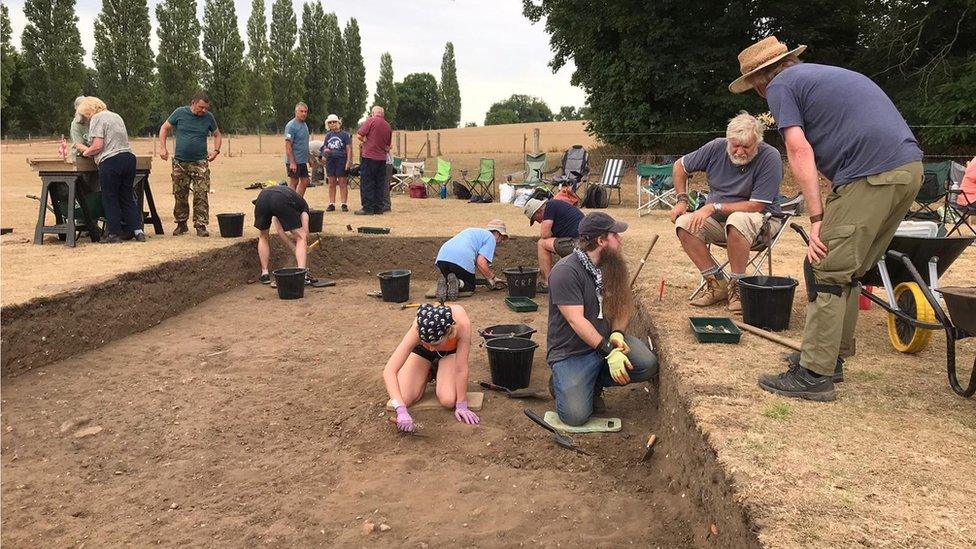
The new excavations in progress close to the Roman temple site at Caistor St Edmund, Norwich
A new area surrounding a Roman temple site is to be excavated after it revealed "clear signs" of buried buildings and ditches.
The discovery at the 2nd Century temple site at Caistor St Edmund, near Norwich, was made following extensive geological surveys of unexplored land.
According to the Caistor Roman Project (CRP), Roman-dated pottery was found in test-pit excavations on an area of land known as Friston Field.
The land is currently used for grazing.
The Iceni tribe were thought to have built the first temple at Caistor in the Iron Age, with Roman temples constructed in the 1st and 2nd Centuries.
The Iceni were led by Boudicca, a female warrior who rebelled against the Romans in AD61 and attacked Colchester, London and St Albans, before being defeated.
The site has been known about since 1957, with investigations routinely undertaken since then, external.
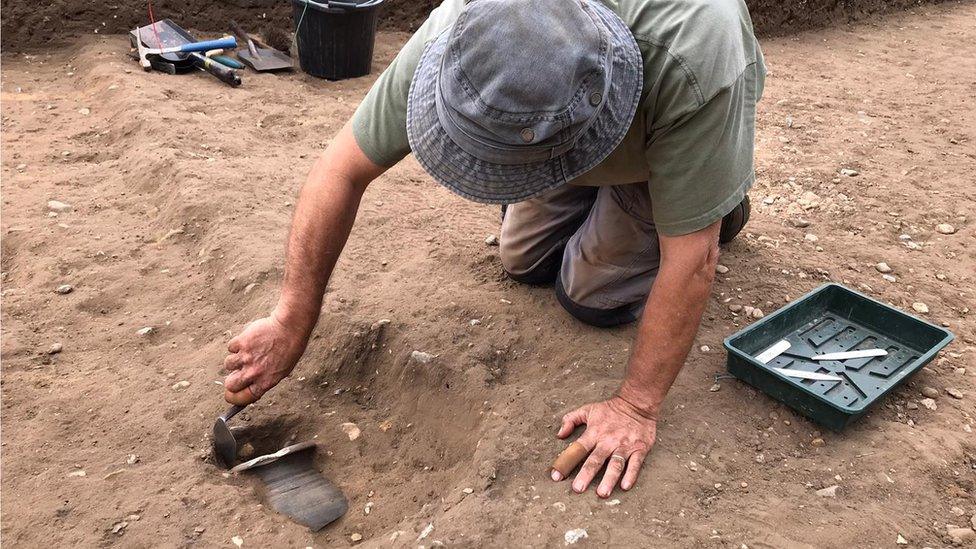
Newly uncovered Roman pottery found in Friston Field
According to the CRP, the buildings identified in its geological survey could be part of a Roman villa or might represent another part of the temple complex.
The CRP said it was likely to have been a significant site, occupying a highly visible position near the temple and close to some principle roads.
Other finds from the field hinted at pre-Roman activity, reinforcing the suggestion that the Caistor area was significant before the Roman town.
Prof Will Bowden of the University of Nottingham, which is leading the project, said: "This is a really important opportunity to expand our knowledge of the area around the Roman town.
"Our previous work has developed and reinforced the picture of a densely populated landscape, but now we are really venturing into the unknown areas on the archaeological map of Caistor."
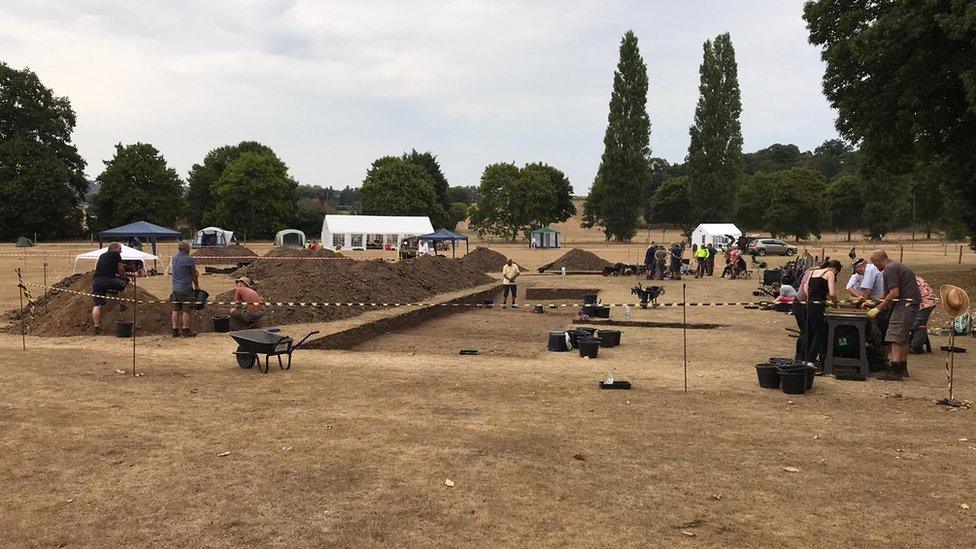
Alan Pask, chairman of CRP, said: "This is another exciting dig for our volunteers who have worked so hard over the years to create these kinds of researches, which are critical to our understanding of Caistor Roman Town and its hinterland.
"This year provides special challenges in such hot and dry conditions, but we're sure that all volunteers will derive huge satisfaction from some of the secrets which lie beneath the quiet fields."
Members of the excavation team will be filming their work for the BBC programme, Digging for Britain.

Find BBC News: East of England on Facebook, external, Instagram, external and Twitter, external. If you have a story suggestion email eastofenglandnews@bbc.co.uk, external
Related topics
- Published22 December 2021
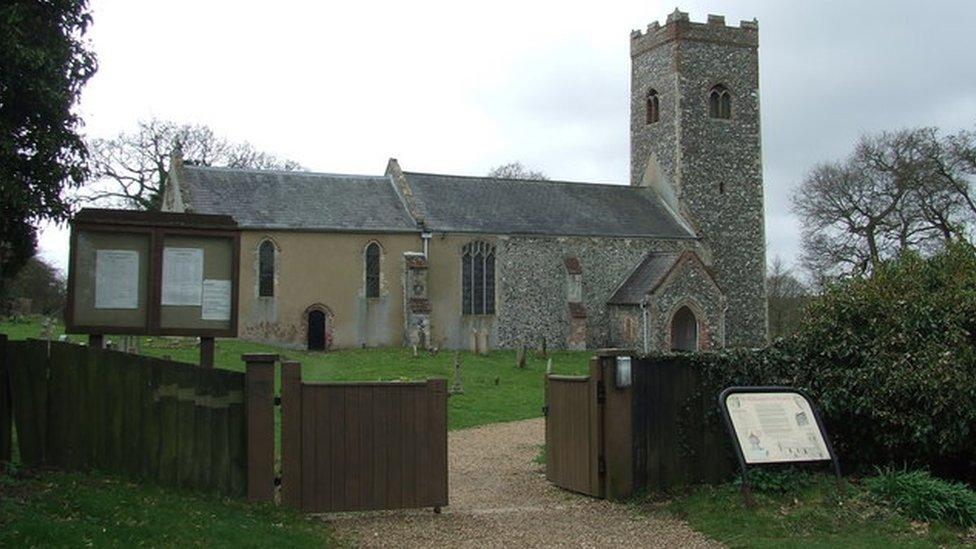
- Published13 September 2020
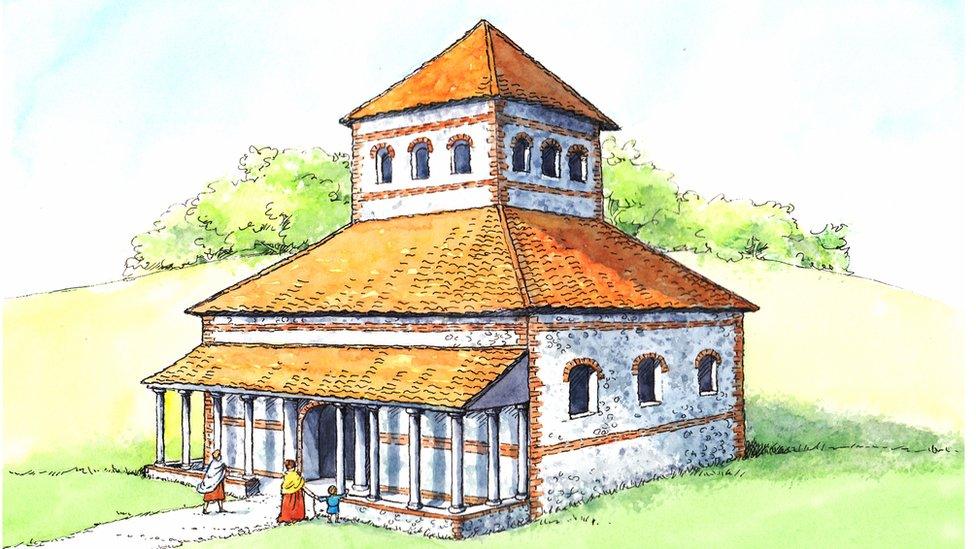
- Published20 September 2014
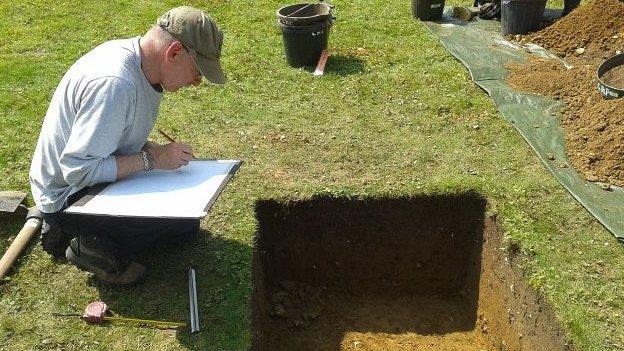
- Published12 September 2012
.jpg)
- Published15 August 2011
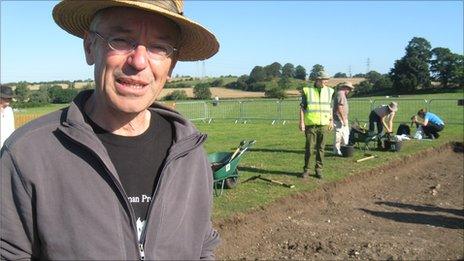
- Published8 July 2011
